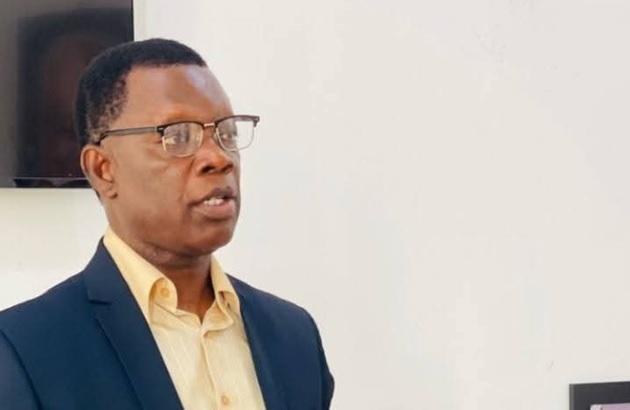MONROVIA – Associate Professor Dr. Josephus Gbala-hinnih Moses Gray, Dean of the Amos C. Sawyer College of Social Sciences and Humanities at the University of Liberia (UL), has called on political science students to adopt a constitution that will guide and regulate their association’s activities. Speaking at an academic forum on March 20, 2025, Dr. Gray emphasized the importance of structure and accountability within the Political Science Student Association.
The event, held at the Thelma E. Duncan Sawyer Faculty Lounge on the Fendall Campus, gathered faculty members, professors, and students from the Political Science Department. Also addressing the gathering were the department’s chairman, Assistant Professor Richmond S. Anderson, and academic scholar Mr. Roosevelt Tule.
Dr. Gray, who also serves as Sharda University’s ambassador to Liberia and holds an adjunct faculty position at its Department of Political Science, underscored the necessity of a strong constitutional foundation for the student association. He urged students to ensure the document clearly defines leadership roles, organizational goals, and aligns with the university’s policies. According to him, the constitution should provide structure, continuity, and a sense of accountability among its members.
“This instrument should establish rules, purpose, order, and direction,” Dr. Gray stated.
He also took the opportunity to express concern over persistent student protests at the University of Liberia, arguing that such actions tarnish the institution’s reputation on the global stage. Dr. Gray challenged the Political Science Student Association to take the lead in promoting nonviolent approaches to addressing grievances. He encouraged them to launch a university-wide campaign to educate their peers on resolving disputes through constructive engagement rather than demonstrations.
Highlighting recent achievements and reforms at the Amos C. Sawyer College, Dr. Gray reminded students that the progress of Liberia’s flagship university depends on collective effort. He stressed that a conducive academic environment is crucial for quality teaching, research, and learning.
Dr. Gray also reflected on a key academic development at UL as the Faculty Senate’s approval of the Liberian Constitution as a required course within the Political Science Department. The course, which is now mandatory for students pursuing a bachelor’s degree in Political Science, covers three major tracks: Liberian Government and Politics, Comparative Politics, and International Relations.
Dr. Gray’s remarks reinforced the importance of institutional governance, urging students to embrace leadership, accountability, and peaceful dialogue in shaping the future of their association and the university as a whole.







